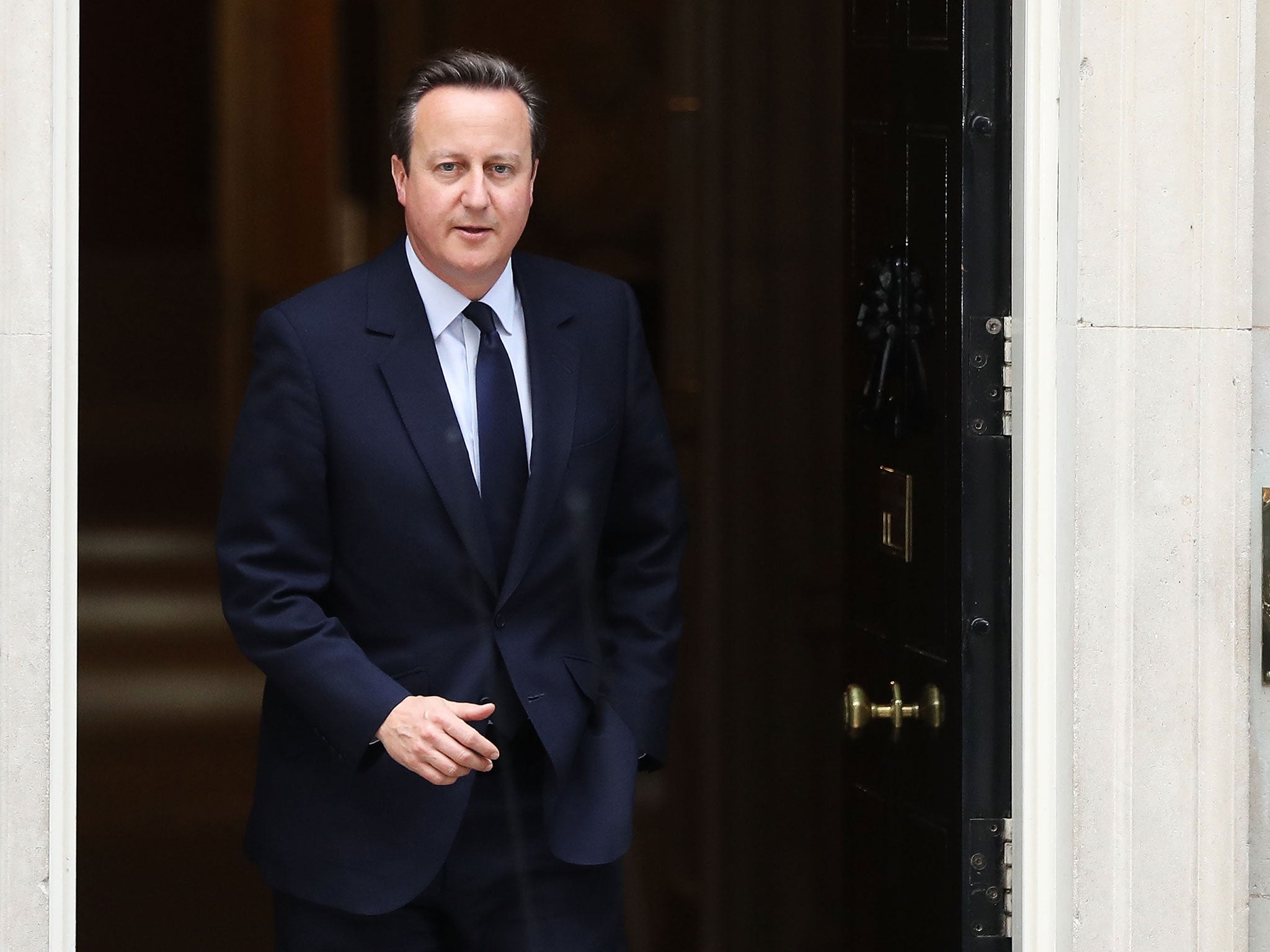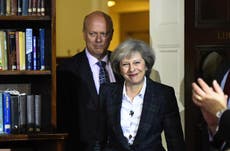These are the ways Cameron actually changed society - and what we can expect from Theresa May
'Listen to this: Britain has the lowest social mobility in the developed world,' David Cameron said in a speech five years after he became Prime Minister, which was about as encouraging as what May has said this week


“Listen to this: Britain has the lowest social mobility in the developed world. Here, the salary you earn is more linked to what your father got paid than in any other major country. I’m sorry, for us Conservatives, the party of aspiration, we cannot accept that.”
Those are the words of David Cameron in 2015. He was right: the UK had – and has – appalling levels of social mobility and income inequality, some of the worst in the developed world. At the point at which Cameron explicitly chose to bring this sorry fact up, he’d already been in power for five years – and absolutely nothing had changed.
Actually, it’s not true to say that nothing had changed. Overall inequality remained basically stagnant, but some other important indicators of national hardship had seen significant developments. The number of children in absolute poverty was rising, having previously fallen year on year since the mid-nineties. It was 2010 – the year that Cameron took the helm – that marked the reversal of this trend; since then, 500,000 extra children have sunk into poverty, two thirds of whom have at least one parent in work.
No surprise when taking into account statistics from the Trussell Trust, a charity that provides food banks and which is currently seeing a record high in demand for emergency food supplies. This year, the number of people in crisis requesting three days’ worth of basic food rose by 2 per cent to over 1.1 million. In 2010, it was 61,468. Most tellingly, 23.3 per cent of food bank users give their reason for going hungry as low income. That gives you an idea of how bad wage inequality had become.
People in the bottom 10 per cent of the UK population have on average a net income of £8,468 in 2016. The top 10 per cent have net incomes almost 10 times that (£79,042). Meanwhile, wealth is still spread unevenly across the UK, with the average wage in the North East of the country differing from the average wage in London by about £15,000 per annum.
If you’re a child who grows up in one of those poverty-stricken households with a parent on a very low salary and few qualifications, your chances of bettering yourself through higher education haven’t gone up under “the party of aspiration” either.
In 2012, three prestigious private schools and two elite sixth form colleges sent as many pupils to Oxford and Cambridge universities as 1800 state schools and colleges across England. By 2015, the institutions were again reminded that they were failing state applicants and privileging private entrants by the publication of a number of embarrassing reports, including one conducted by The Observer, that found some major Oxbridge colleges take less than half of their intake from state schools. Remember, when you read this, that 93 per cent of the UK’s pupils are state educated.
Perhaps it’s unsurprising that there’s been little will to tackle this problem, considering that 32 per cent of MPs come from that privileged 7 per cent who experienced private education (not to mention 54 per cent of FTSE100 chief execs, 54 per cent of top journalists and 70 per cent of High Court judges). But you’d think those good old meritocratic Tories might have made more effort to change it, considering how attached they are to the “pulling yourself up by your bootstraps” narrative. I thought, at least, they might at least care about what’s going on at Oxbridge.
But compare what Cameron said during his speech in 2015 with what Theresa May said this week, as she set out the little that is required of her prime ministerial manifesto. “It is apparent to anybody who is in touch with the real world that people do not feel our economy works [for everyone],” she said, citing the “ordinary members of the public” who “made real sacrifices after the financial crash in 2008”.
Never mind that she voted for the bedroom tax, against using public money to create guaranteed jobs for young people who had spent a long time unemployed, and against tax breaks for small firms taking on extra workers. Most depressingly, she even voted against curbing payday lenders (or loan sharks, as many of us in that “real world” she references call them).
May voted, in 2013, against creating 100,000 affordable homes that would begin to tackle the housing crisis and against banning unfair lettings fees levied by estate agents on tenants rather than landlords. She voted for schemes that would allow employees to sell their rights. She voted against curbing “rip off” rail fares and energy bills, and in favour of repealing the Human Rights Act. And despite grand remarks about our great British industries and how they mustn’t be allowed to collapse or fall into the hands of asset-stripping corporations from overseas, she voted against plans to save the steel industry this year.
Inequality has far-reaching consequences for society, even for those not stuck at the bottom. According to The Equality Trust, a reduction of inequality from Spanish levels to Canadian levels would lead to a 20 per cent reduction in homicides and a 23 per cent reduction in robberies. In more equal societies, people are less likely to be mentally ill or obese, and there are lower rates of infant mortality – all of which means less strain on the NHS. And even if you couldn’t care less about your fellow (wo)man, less equal societies have less stable economies which are more likely to suffer financial crises, inflation and debt. You can’t have prosperity without a smidgen of fairness.
Both Theresa May and David Cameron can talk the talk: that much is obvious. Cameron proved that walking the walk was beyond him. I hope May is the social maverick and financial reformer she positioned herself as this week – but when you look into her political decisions past, it’s hard to feel optimistic.


Join our commenting forum
Join thought-provoking conversations, follow other Independent readers and see their replies